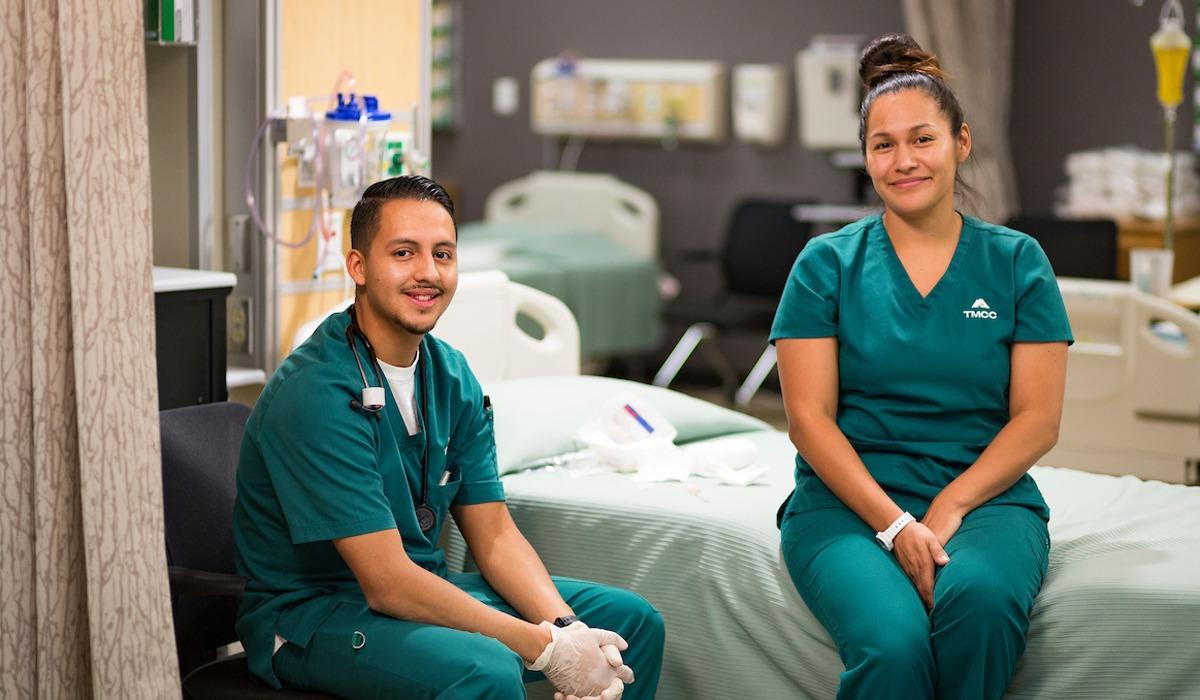
The “community” in TMCC’s status as a community college means that we are focused on working with industry partners to solve local and regional issues. Long ago, the nursing industry updated their preferred educational requirements to a bachelor’s degree, meaning nurses take longer to complete their education and training—and in the meantime, a global pandemic has seen this industry lose a lot of professionals due to burn-out and a high turnover rate.
In response to the regional need for more skilled nurses, TMCC is moving forward with a project to expand the William N. Pennington Health Science Center, broadening the number of students training to become skilled nurses, and coming at a time when our state stares down the somber recognition of a shortage. As fate would have it, the Northern Nevada Nursing Summit held on July 13 at the Whitney Peak Hotel addressed many of the issues, such as the challenges faced by employers of nurses as well as successful strategies to increase the supply and diversity of registered nurses in our region. Brainstorming solutions and instituting improvements are two elements aiming to reinforce allied health personnel, pressing onward into a twenty-nine month campaign against COVID-19.
The Backbone of Health Care
The expansion of Pennington Health Science Center includes the construction of extra resources intent on improving its learning environment and generating a spectrum of distinct career opportunities. Among the renovations are three forty-student classrooms with a removable wall, offering a combined capacity of ninety, as well as twelve new office spaces being built to ensure faculty can educate a greater number of students before their vault to the front lines.
Dr. Julie Ellsworth, Dean of Life Sciences, Allied Health and Public Safety, and Dr. Jody Covert, Director of Nursing, shared their thoughts as seasoned veterans in the field of allied health.
“The expansion is so exciting and we are blessed to have the community support to further our capabilities for nursing education,” said Covert.
“The expansion will also allow us to grow educational opportunities in Radiologic Technology, Sterile Processing and Surgical Tech, and Public Safety including EMT, Paramedic, Fire Suppression, and Emergency Management and Homeland Security,” said Ellsworth.
An extended nursing lab space will be able to accommodate twenty-four students, where they’ll specialize in mastering abilities to help stem the tide of this pathogenic struggle. Also in combating this nursing shortfall is an increase in the number of students, meaning a substantial surge of trainees can study the ever-developing realm of allied health. Plus, the inclusion of an outdoor seating space will provide a pleasant respite for those who have been tirelessly at work.
“If someone wants a job that is fulfilling because it helps people and helps their community, they should consider working in the Allied Health field. These jobs also allow for progressive growth and professional advancement, including health coverage and other fringe benefits, and many are well compensated and highly respected,” said Covert.
Nursing Summit Revelations
At the apex of the pandemic, Northern Nevada searched for people with prior medical experience to try to alleviate the rift already arising from the flood of cases. Regrettably, regional hospitals and long-term care facilities bore witness to the strain of nursing staff limitations. As if that weren’t enough, at the start of the COVID-19 pandemic, Nevada Governor Steve Sisolak declared a state of emergency, authorizing nurses with out-of-state licenses to assist in Nevada hospitals without being licensed in the state. The pandemic persists in emphasizing the role of, and need for, highly skilled medical professionals.
When TMCC faculty participated in the Nursing Summit last month, it was with the goal to be a part of the solution here in northern Nevada.
“The Nursing Summit focused on understanding the challenges faced by each part of the system, from educating new nurses to filling openings in hospitals, and finding new ways to collaborate on solutions,” observed Ellsworth. “Ideas included possibly changing shift lengths to recruit recently retired nurses back into the workforce to help with shortages and the skills gap, creative ways to increase nursing faculty compensation or benefits to be able to better compete with industry pay, and expanding apprenticeships so nurse trainees can work in clinical settings, gain skills, and help fill gaps as they progress in their education.”
Staying up-to-date with healthcare advancements is critical in remaining one step ahead of infectious diseases. Faculty stick to engaging in “numerous continuing education courses in their practice specialty,” refining their knowledge as a means to achieving personal growth.
There’s no “magic bullet” to fix everything, but the steadfast care personified in Northern Nevada’s Allied Health workforce gives us the ammunition we need to maintain healthy lifestyles. What’s truly admirable, though, is their sense of community in the nursing profession.
“We really care about each other and support each other and this keeps us all coming back each day,” said Covert. One thing is for sure: capable, determined, and sincere individuals carry on despite the uncertainty of what the future may bring.
“Realizing that each entity in the pathway, from higher education to employers, has their own set of constraints and how all of us persevered during the difficult times of the pandemic,” Ellsworth discerned while attending the nursing summit. “Even though everyone is tired and the tough times continue, there is an energy to reexamine how we do things, collaborate, and advocate for positive change.
For more information on the William N. Pennington Health Science Center, please contact us.






